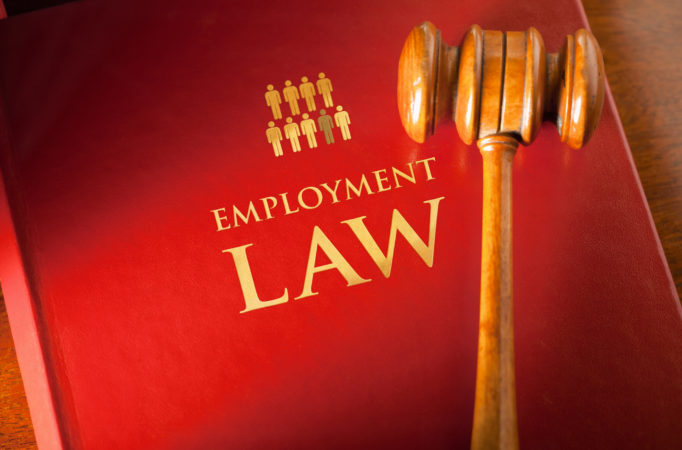Employment & Labor Law
OSHA & COVID-19: Does An Employee’s Positive Test For COVID-19 Trigger OSHA’s Illness Reporting Requirement?
OSHA has generally taken a backseat on COVID-19, leaving it to the CDC and state governments to give directions to employers. However, recent OSHA COVID-19 guidance puts employers in a precarious position. OSHA now asks employers, in the event an employee tests positive for COVID-19, to investigate and report the injury to OSHA if the virus transmission occurred in the workplace.
OSHA has a long-standing requirement for employers to report any illness or injury that arises in the workplace and caused an employee to die, loose consciousness, miss days away from work, receive medical treatment beyond first aid, incur work restrictions or a transfer to another position–except that, per standard OSHA rules, employers with 10 or fewer employees and certain employers in low hazard industries need only report work-related COVID-19 illnesses that result in a fatality or an employee’s in-patient hospitalization, amputation, or loss of an eye. The report is made via OSHA Form 300. OSHA explains that it does not expect exhaustive investigations into employees testing positive for COVID-19 but asks employers to talk to the employee(s) and others in the workplace and make a judgment whether COVID-19 was contracted in the workplace.
Employers should be very wary as this determination is fraught with danger. The source of a particular individual’s coronavirus transmission is, in most circumstances, beyond the bounds of our scientific knowledge. There is no definitive way of knowing whether an individual who tests positive contracted COVID-19 in the workplace, the grocery store, at home, etc. An employer report to OSHA that the transmission occurred at work could easily be used against the employer in a workers’ compensation claim by the employee or, far worse, in a personal injury or wrongful death claim brought on behalf of the employee’s family member who tests positive and has serious symptoms. It will be hard to retract the workplace illness report to OSHA and its conclusion of workplace transmission. Therefore, we advise great caution and consideration before filing a report that an employee’s positive COVID-19 test result was due to a workplace transmission.
OSHA recognizes that “[r]ecording a COVID-19 illness does not, of itself, mean that the employer has violated any OSHA standard” (OSHA Memo to Regional Administrators contained in link below). OSHA’s COVID-19 inspections and possible citations are done pursuant to the Occupational Safety & Health Act’s so-called general duty clause (§ 5(a)(1)), which states that “[e]ach employer shall furnish … employment … free from recognized hazards that are causing or are likely to cause death or serious physical harm …” Only around 2% or less of OSHA’s citations are issued for violations of this general duty clause, in part because the standard for establishing such a violation includes, among other things, showing the availability of a feasible and useful method to correct the hazard. This is why OSHA falls back on CDC guidelines given the newness and developing knowledge regarding the coronavirus.
Employers should follow CDC and state guidelines on workplace COVID-19 measures. See our article and sample workplace policy on this here. Contact us to discuss the issue of whether the OSHA workplace illness/injury reporting requirement applies to an employee of yours who tests positive for COVID-19. A copy of OSHA’s memo on this subject, including guidelines identified by OSHA for employers to consider in deciding whether a COVID-19 positive employee contracted the illness in the workplace, is available at https://www.osha.gov/memos/2020-05-19/revised-enforcement-guidance-recording-cases-coronavirus-disease-2019-covid-19.
Contact the following two attorneys at Houston Harbaugh, or your regular Houston Harbaugh attorney, to discuss this issue:
Craig M. Brooks
Samuel H. Simon
About Us
Claims and suits brought against employers by employees are a large part of the cases being handled by the Employment lawyers at Houston Harbaugh. We focus on assisting and counseling our clients to be positioned to avoid claims, and if the claims are brought, to be prepared to defend against them.

Craig M. Brooks - Practice Chair
An employment and labor attorney, Craig primarily represents management, providing advice on how to handle employee issues and actions, as well as defending or pursuing claims in court and before government agencies on matters.
An employment and labor attorney, Craig primarily represents management, providing advice on how to handle employee issues and actions, as well as defending or pursuing claims in court and before government agencies on matters including:
- Employment discrimination claims
- Wage and hour matters
- Sexual and other harassment investigations and claims
- Family and Medical Leave Act
- Wrongful discharge
- Labor/Union matters
- Restrictive covenants
- Affirmative action programs
- Defamation
- Privacy
Craig also represents individuals with advice and pursuing claims arising out of their employment.

